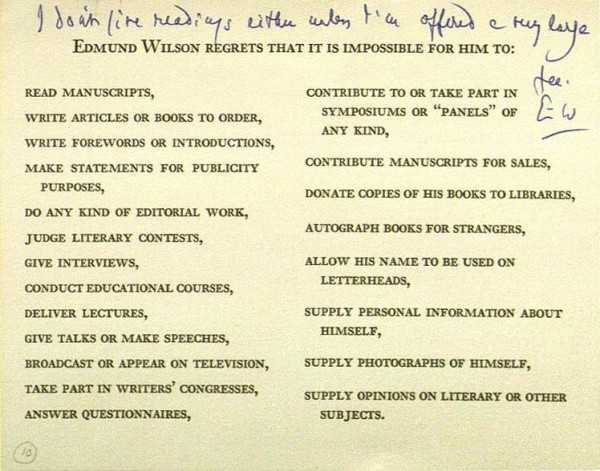Commandments
1. Work on one thing at a time until finished.
2. Start no more new books, add no more new material to “Black Spring.”3. Don’t be nervous. Work calmly, joyously, recklessly on whatever is in hand.4. Work according to Program and not according to mood. Stop at the appointed time!5. When you can’t create you can work.6. Cement a little every day, rather than add new fertilizers.7. Keep human! See people, go places, drink if you feel like it.8. Don’t be a draught-horse! Work with pleasure only.9. Discard the Program when you feel like it — but go back to it next day. Concentrate. Narrow down. Exclude.10. Forget the books you want to write. Think only of the book you are writing.11. Write first and always. Painting, music, friends, cinema, all these come afterwards.
— Henry Miller, notebook, 1932-1933 (quoted in The Art & Craft of Novel Writing by Oakley Hall)
